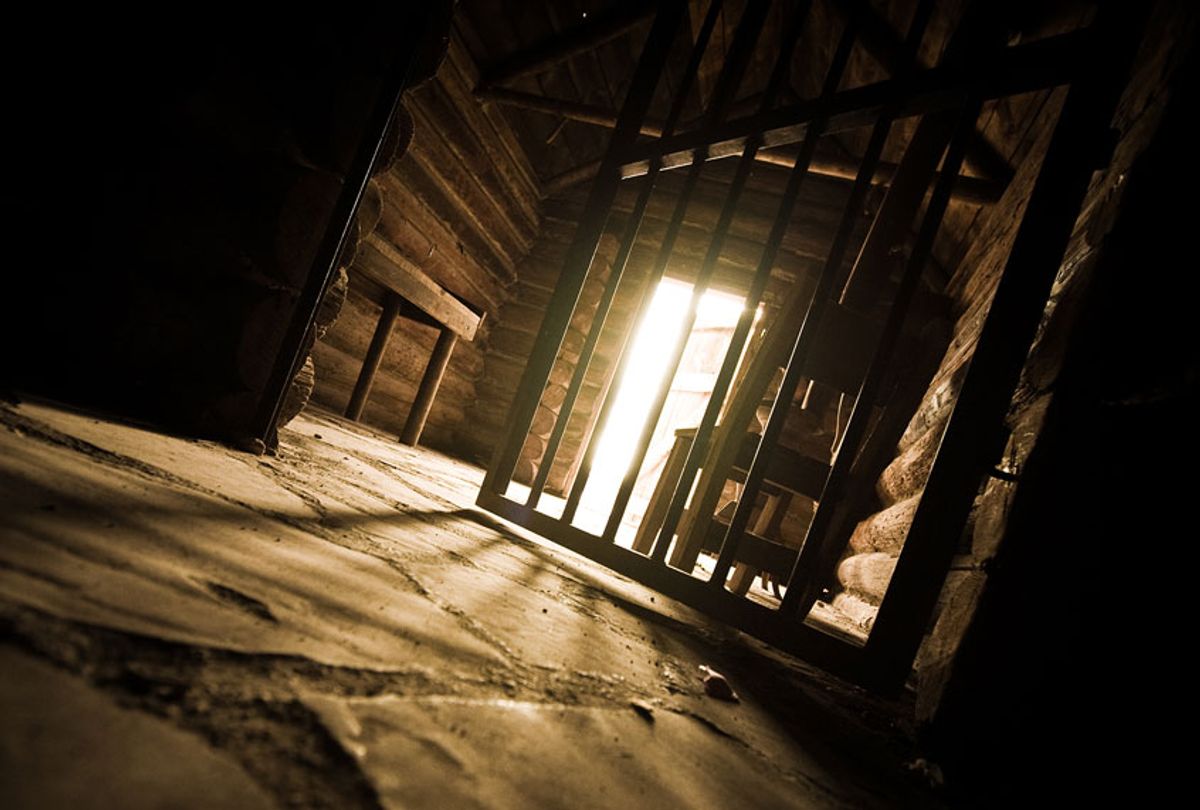Numbers. In the era of COVID-19, we are obsessed with them. How many people are infected? How many people have been tested? How many people have died? Am I six feet behind the next person in line? Will 25 rolls of toilet paper be enough for 30 days? As people watch their finances dwindle and their boredom expand, the anxiety-provoking math of how long we must live this way is the most difficult number to ascertain.
There are millions of citizens in this country with experience navigating numbers and managing the grief of jarring change, and we are not neatly folded into the categories of statisticians or social workers. You do not see us in press conferences, but we have much to teach you about the powerlessness you feel battling an invisible enemy while staring down the void of isolation. We are the people who have survived while being numbers inside a jail or prison, and we can help you through this.
My teenage son lives in a leafy suburb with his father 40 miles north of New York City, and we do not know when we will see each other again. He is reliving that era when I was incarcerated and the visiting hours and distance were incompatible with school. Phone calls and letters were all we had to stay connected. Over 113 million people in America have an immediate family member incarcerated. There are tens of millions of kids just like him, who are being re-traumatized by the outside world co-opting prison slang like lockdown and isolation to describe their own COVID-9 experiences.
Several months pre-COVID-19, an acquaintance joked that New York City was on lockdown in anticipation of a snowstorm. He misinterpreted my silence as disappointment in being cooped up over the weekend, and he started rambling that it would be "okay," that I could "get to the mall or salon or whatever next week."
But my silence was borne of terror — not inconvenience. Casual use of that simple compound word, "lockdown," had jarred me back to the times when lockdown meant I would be eating my meals from a paper bag stuffed through a two-inch slot, and I would be drinking, bathing, and hand-washing underwear in frigid water dribbling from a sink smaller than a sheet of loose-leaf paper. I bravely asked him never to use that word around me, and explained what it was like to live in a place where the lights never go out.
"I had no idea," was all he could say. I did not hear from him again until a month post-COVID-19.
"I didn't know who else to call," he said, all sheepish and apologetic, "but I feel like I'm in jail and losing my mind." I pointed out that isolating at home with all the accoutrements of modern life, lamenting the difficulty of getting a FreshDirect delivery slot is nothing like being stuffed into 63 square feet without ventilation or a fridge. When food delivery comes in a prison lockdown, the soggy paper sack will have four slices of bread, two slices of cheese, two slices of unidentifiable meat product, a thimble of juice and two cookies. He commiserates with his family on Facebook and educates himself on-demand about the current best practices to protect himself as the pandemic tears through New York.
People on the inside cannot access people or information, and cannot take adequate care of themselves. The lack of agency for a person in prison means decisions are being made for her by many well-meaning people who do not understand the true meaning of isolation. Or lockdown. Right now, everyone who is not deemed an "essential worker" is struggling with the edict to stay at home and social distance. People who have been in prison, however, are not struggling in the same ways. We have been separated from our loved ones already, impoverished and marginalized; doing without is second nature. We work with identifiable, available resources to find solutions.
My acquaintance sought me out because the COVID-19 response team issued orders without providing the strategies to make compliance more feasible. Suddenly, feeling like a prisoner, he realized I was already intimate with his struggle. While the government changed the rules of engagement in response to the pandemic, no one explained how to incorporate the rules. No one helped identify or manage the stressors inherent to compliance. For the first time since my disclosure that I had been in prison, he saw me as a resourceful person with a contribution to make.
I assure you New York's COVID-19 response in jails and prisons would look different if Governor Cuomo utilized the experience of those who know what a true lockdown looks and feels like. It is not enough for lawmakers without inside experience to say they "are doing everything they can" — it is clear the needs of this population are woefully misunderstood and not represented in governmental policies.
A common credo in prison rehabilitation programs is Maya Angelou's "those who know better, do better." We know enough about COVID-19 and prison conditions to conclude detention centers are unsafe, and people on both sides of the wall will sicken and die because of it. I challenge all of our legislators to evaluate their assumptions about prisons and the people who live and work in them. Stop trivializing our experience and start benefiting from it. Embracing the ingenuity and wit of every American makes us all better, together, because another important number to remember is 95. Over 95% of the people in prison who will come home. And this silenced army is capable of building a better world for us all.



Shares